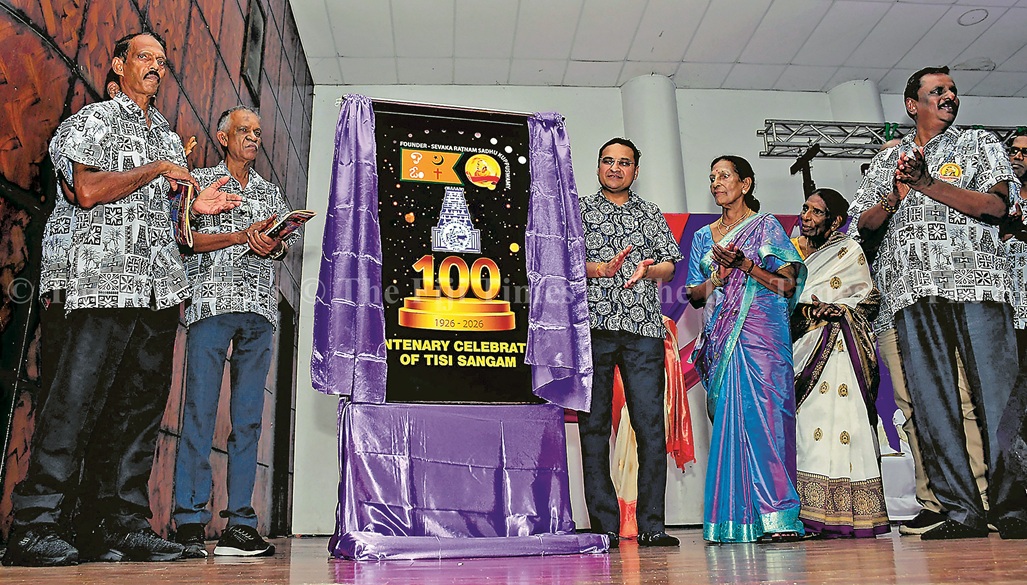A powerful cultural revival is bringing new life to Fiji’s South Indian community.
Being one of the oldest and largest cultural organisations in the country, the Then India Sanmarga Ikya (TISI) Sangam Fiji has revamped teaching Tamil language in its schools.
Launched in November 2024, this program is more than just an education reform.
It is a proud act that has inspired the Sangam community as it prepares for its 100th anniversary in April 2026.
This revival is the spiritual and cultural heartbeat of Sangam’s “Road to 100 Years” campaign, formally launched at the annual convention held in Ba in April 2025.
By giving priority to teaching mother tongue in Sangam schools, Sangam is making a bold step to protect the identity and heritage of a community whose ancestors came to Fiji as indentured labourers or Girmitiya.
Tamil is one of the oldest living languages in the world.
To understand the importance of this revival, one must look back to Sangam’s roots.
The organisation was founded in 1926 by Sevaka Ratnam Sadhu Kuppuswamy, a former Girmitiya from India who arrived in Fiji in 1912.
Literate in Tamil and Telugu, Sadhu Kuppuswamy dedicated his life to uniting the scattered South Indian community and preserving their cultural and language identity.
While the first Girmitiya arrived in Fiji in 1879, South Indians started arriving in 1903 on ships leaving Madras, now known as Chennai.
Sadhu Kuppuswamy believed that education was the key to dignity and survival.
The founding of Sangam — Then India (South India) Sanmarga (Right Path) Ikya (Unity) — was built on the principles of “Love, Light, and Faith.”
Education was central to its mission, ensuring that Tamil, Telugu, and Malayalam-speaking children could attend schools that respected their ancestral roots.
Over time, formal language teaching declined, weakening a core pillar of Sangam’s vision.
The current revival is therefore deeply emotional and symbolic. It fulfils Sadhu Kuppuswamy’s dream.
The Tamil language program is the result of a partnership between the diaspora, the Fijian Government, and the Government of India.
Following decades of absence, authentic Tamil language is now being taught in Sangam schools, reconnecting young people with their heritage.
With support from the Fiji Ministry of Education and the Indian High Commission, Sangam arranged for three specialised Tamil teachers from India.
They are now teaching at Penang Sangam Primary School in Rakiraki, Nadi Sangam Primary School, and Labasa Sangam Primary School.
Their classes are open not only to students but also to community members online, showing that Tamil is a living, shared cultural treasure.
India’s High Commissioner to Fiji, HE Suneet Mehta, said the relationship between India and Fiji is more than diplomatic — it is cultural and deeply personal.
Reflecting this bond, the High Commission partnered with the Education Ministry and Sangam Fiji to launch the Tamil classes.
“This initiative touched many hearts, both here and in India. In fact, Prime Minister Narendra Modi, in his radio address ‘Mann ki Baat’, personally praised the Indo-Fijian community for its dedication to preserving Tamil culture,” Mr Mehta said.
The “Road to 100 Years” campaign is not only about language.
It also includes spiritual and physical renewal.
A major focus is the restoration of two of Sangam’s most sacred temples — the Sri Siva Subramaniya Swami Temple in Nadi and the Sri Raja Maha Mariamman Tiru Kovil in Suva.
To ensure authenticity, Sangam brought in master artisans from Tamil Nadu to restore the temples according to traditional Dravidian architectural and sculptural standards.
Alongside this spiritual renewal is the development of the Nadi Sangam Complex, a multi-million-dollar convention and community hub.
This modern facility will serve as a central platform for Sangam’s next century of service, education, and cultural leadership.
TISI Sangam Fiji national president Parveen Kumar Bala said that at the heart of the centennial journey is a commitment to youth.
Mr Bala said a series of academic and creative competitions — including essay writing, poster design, and digital art —have been launched to engage students in Sangam schools.
He said these activities encourage them to reflect on Sangam’s legacy.
“These initiatives aim to instil pride in their heritage and inspire a new generation to carry forward the values of ‘Love, Light, and Faith’,” Mr Bala said.
As the Sangam community prepares for the centennial celebration in Nadi, the “Road to 100 Years” is lit by renewed cultural commitment, spiritual devotion, and strategic investment.
TISI Sangam Fiji is not only honouring its past but is also building a future where unity, education, and cultural pride continue to thrive.



